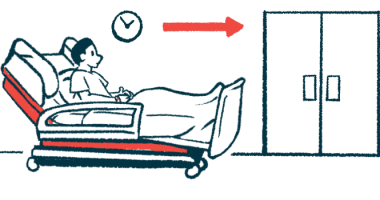Ehlers-Danlos Society Launches Project ECHO Initiative Aimed at Patient Care Worldwide

The Ehlers-Danlos Society has launched an initiative to support healthcare professionals worldwide to care for patients with Ehlers-Danlos syndromes (EDS) and other hypermobility spectrum disorders (HSD).
Part of Project ECHO (ECHO stands for Extension for Community Healthcare Outcomes), the online educational and mentoring program called EDS ECHO connects EDS and HSD experts with clinicians across medical specialities to improve patient care and outcomes. Currently, there are 268 Project ECHO programs in 34 countries.
EDS ECHO has started with two hubs, one in Baltimore, Maryland, and the other at the Royal Society of Medicine in London, England. The long-term goal is to create multiple academic “hubs” worldwide, removing barriers for clinicians who seek to learn more about EDS and HSD.
The centerpiece of the ECHO model is its hub-and-spoke knowledge-sharing networks, led by expert teams that use videoconferencing to conduct virtual clinics with community providers. The initiative is aimed primarily at rural and underserved communities.
“EDS ECHO seeks to tackle a key issue facing patients with EDS and HSD: lack of knowledgeable clinicians,” Lara Bloom, The Ehlers-Danlos Society’s international executive director, said in a press release.
“Too many in our community report that they are forced to travel far and wide to access a physician who knows how to manage their healthcare, and often at great personal expense,” Bloom added, noting that patients sometimes must wait more than two years to see an expert.
The EDS ECHO initiative is touted as the first worldwide EDS program, and will serve as a pilot program for future international Project ECHO efforts. So far in the online clinics, EDS diagnosis, musculoskeletal complications, and pain management have been discussed.
Project ECHO link hubs’ expert specialist teams with primary care physicians in local communities. Those clinicians, known as “spokes” in the ECHO model, become part of a learning community, receiving mentoring and feedback from specialists. Together, they manage patient cases.
During 90-minute weekly “teleECHO clinics,” primary care clinicians from multiple sites present patient cases to specialist teams and to each other, discuss new patient developments, and determine treatment. Clinical experts will run a rolling program that, for free, covers the main aspects of EDS and HSD.
“There simply aren’t enough medical professionals who know how to handle an EDS or HSD patient, and many of the clinicians who are knowledgeable are grouped together in just a handful of locations around the world,” said Stacey Simmonds, ECHO clinic coordinator.
“The Ehlers-Danlos Society and the EDS International Consortium have made a lot of progress in recent years, but we needed more EDS and HSD experts. With Project ECHO, we can train our own, no matter where they live,” Simmonds added.
The data-tracking platform iEcho is expected to help ECHO assess its impact and track geographic reach.
The Project ECHO model was developed by the University of New Mexico to help healthcare professionals coordinate care for hepatitis C patients in New Mexico. The university provides resources, training, and support for all Project ECHO programs.






